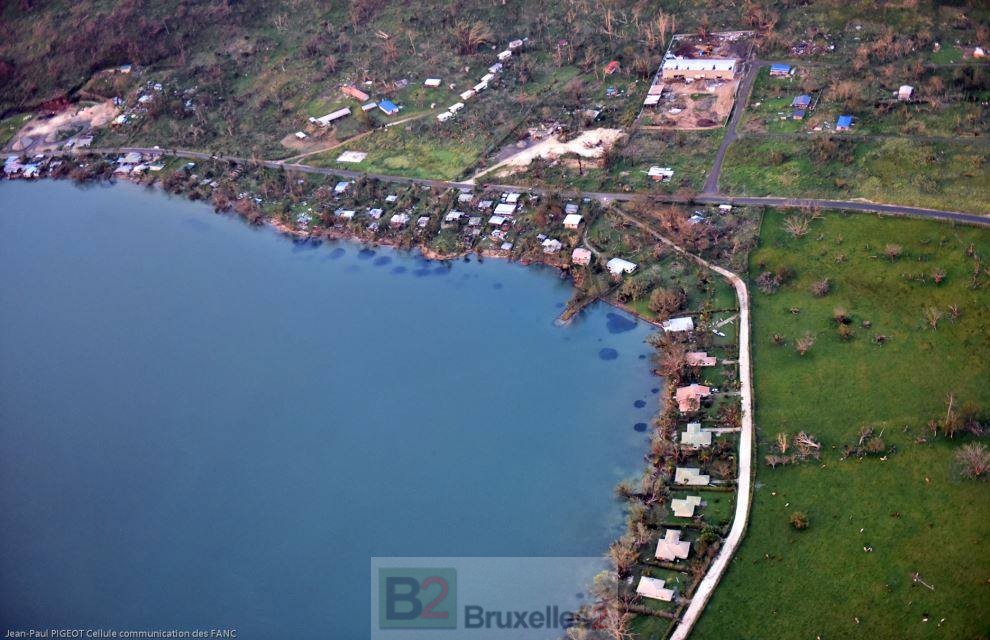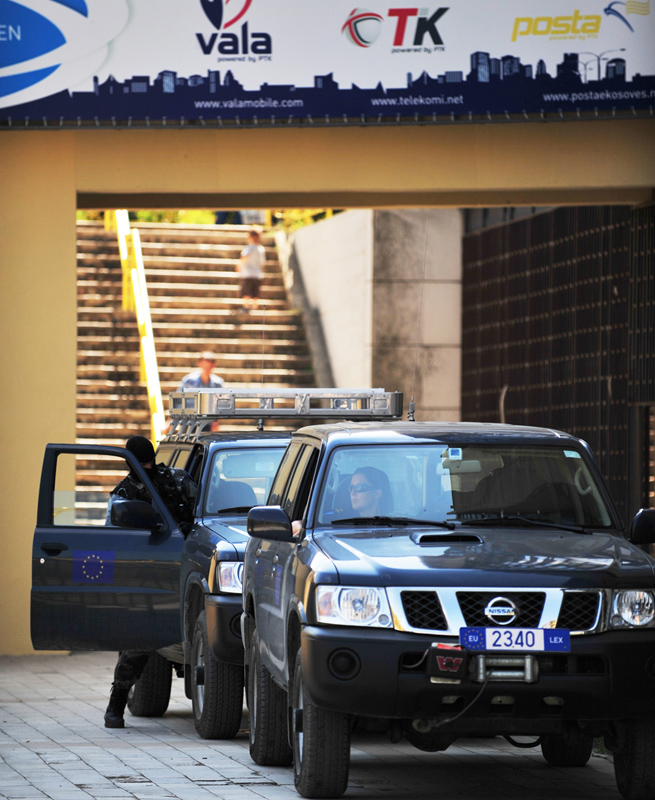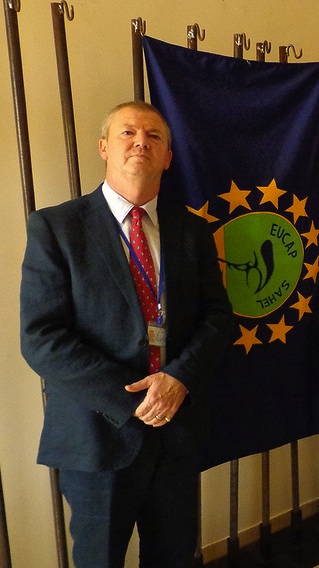Chad: in a few days, the end… And a stripe of European power
(BRUSSELS2) It is rare for a peace stabilization mission to end on time. Usually we play overtime. It is in this that the closing ceremony of the European military mission "Eufor" in Chad and the Central African Republic, Sunday, March 15, is not insignificant. Admittedly, this mission ends and another begins – that of the United Nations (Minurcat II). But that was the purpose of the Eufor mission - to get in place quickly to allow Minurcat to find time to deploy. And, of course, not all problems are solved. The refugees are still there as many, if not more. The displaced also, even if some were able to return to their locality of origin, more or less definitively, at least for harvest time.
Tensions between Chad and Sudan continue, through rebel intermediaries. And the "bandits", often from the ranks of the rebels like those of the regular army, continue to carry out, from time to time, their feasts, often in the city of Abéché itself. But there is a fact on the ground: First, the situation has not worsened. It is already a lot. And, secondly, it is no longer completely a lawless zone. the "bandits" of all paths know that they have a little more danger in carrying out their actions.
EU military capability demonstrated
Beyond that, the EU has proven that it is capable of setting up a military mission on a new scale for it: nearly 4000 men projected over 5000 km, on an arid, difficult terrain, where the lack of water and food combine with the hostility of the elements and the violence of man. Certain think-tanks based in the United States, with no doubt deep but somewhat oriented thinking, and other cassandres were betting on a failure of the mission. Sorry. Nothing happened. Despite all the foreseeable or occurring difficulties – the rebel attack of February 1 in particular, the insufficient number of helicopters as well – the mission was able to set itself up. The readings were done on time. The multinational units have become quite accustomed to working together – although a few minor differences have arisen from time to time (pretty normal for an operation of this magnitude). In all, nearly 10 soldiers took turns throughout the year.
The mission escaped four hazards so I will award it 4 stars
* First of all the very fact that the mission existed with as few "major founding countries" participating. Who could have imagined at the beginning of the defense policy - that is to say barely a few years ago - that Europe could conduct a military operation with only one of the founding countries of defense Europe in edge (France). Neither the United Kingdom (which sent a few intelligence men) nor Germany took part in the operation. And Spain and Italy have only made a contribution – certainly useful – the role 2 hospital for the Italians, aircraft rotations for the Spaniards – but all in all modest. In fact, this operation was only possible with the participation of neutral or non-NATO countries or countries that had recently arrived in the European Union. What a beautiful proof of integration. Note the notable participation of Ireland, Poland, Sweden and Finland. It is the 1st star. And also the consent of the 27 Member States who, unanimously, even if they did not participate, supported the mission (and financed it, to some extent, through the Athena mechanism).
** Then, overcoming the logistical difficulties. And they were not lacking, starting with the transport of troops and materials, by boat, road and air. The challenge was, in fact, to be able to bring all the equipment on site, to build a kind of small town, while there is a shortage of planes in all European countries, and those that remain are often winded (the Eufor mechanics have not been idle to repair the breakdowns) or taken to other theaters of operation (Afghanistan, the Ponant affair diverted one or two planes, etc.). SO. Everyone got involved, loaning a plane for 10 days, for 3 rotations. And we can never praise enough the role of all those who ensured this logistics. And who will still work until the end to repatriate everything. Second star...
*** Let's not forget the other challenge, that ofimpartiality. He was far from won. At the beginning of the mission, the criticisms were numerous and could find some basis. Chad has always been considered a French backyard. For Free France, it is even a mythical land. France, which was one of the initiators (with the United Kingdom) and main contributors to the operation, also intended to honor its intense military cooperation agreement with the government of N'Djamena. The presence of a strong French contingent in Eufor, like the assistance provided by the other French soldiers present under the Sparrowhawk military mission, could be synonymous with confusion. The slightest gesture, the slightest photo could make everything go wrong.
The attack by the rebels and the counter-attack by the Chadian army, for example, placed the soldiers and medical corps of Eufor in front of a dilemma: what to do not only during the attack - which is all in all solvable - but especially after the attack, in case of an influx of wounded? Could the French doctor in Epervier – bound by an assistance agreement with the Chadian military – request and use Eufor's facilities to treat seriously wounded soldiers from the Chadian army? The solution was made with pragmatism and delicacy. The Hippocratic oath helping, the cases were taken care of simply where politics would have been very embarrassed (Fortunately no photo has circulated like that of this Italian doctor boarding a French plane repatriating the Chadian soldiers injured in N'Djamena hospital). A year later, it is clear in everyone's mind that this mission had its own chain of command and autonomous action, its own objective and its autonomy of action, and no one questions the dual role of a member country ( it was France in Chad, it could be Romania in Moldova, or the Czech Republic in Israel). The EU has won its third star...
**** Finally let's salute the European political tactics in which this mission took place. Vis-à-vis Sudan and Chad, whose relations are more than bittersweet. The Europeans were able to ignore certain incidents such as the shooting at Belgian vehicles (read: 2 Belgian Eufor vehicles burned, De Crem confirms and balances…) and not outbid what could pass either for an "error" or an attempt at provocation. How can we not also mention that this mission is one of the first since... where Russian troops are under European command. What a symbol also to see helicopters with red stars next to those of the Poles.
And yet... it almost fell apart. It should be noted that the negotiations of this presence which had started before the summer were tied at the time of the Russo-Georgian conflict. While the United States and NATO pursue a policy – at least for the general public – of a Russian boycott (the Russian and American chiefs of staff meet discreetly in Finland, but that's another story), the Europeans do not cut bridges with Russia and, on the contrary, associate it with their operation. Nice tour de force. With a beautiful double even. Since a few thousand kilometers away, a few days later, American police officers joined the EULEX mission in Kosovo – while Russia condemned with all its might (at least publicly) the deployment of a European force in this region which it considers an integral part of Serbia. Europe has gained the ability to combine global forces with its missions. 4th star...
At the end of this mission, all in all modest in duration and in human investment, Europe won its 4 power stars there average, able to intervene on all difficult terrains. Without too much breakage (*). We deplore (only) one death, Sergeant Paulin (read: First death in operation for Eufor), who was part of the "first entry forces", who died at the very beginning of the operation. Tribute to him.
(NGV)


